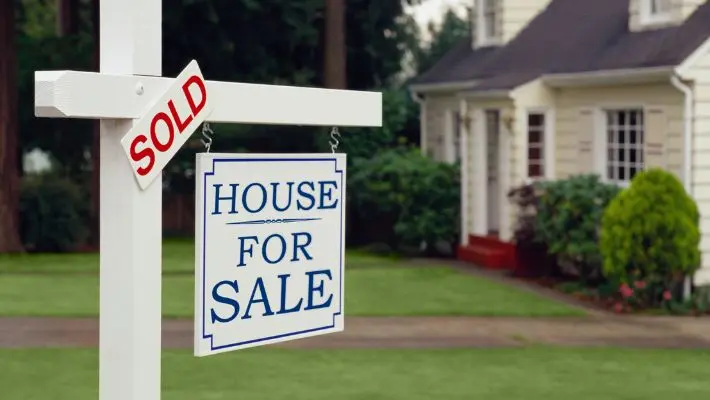
What is a Lease-to-Own Agreement?
The path to homeownership can be intimidating. With a lease-to-own agreement, first-time buyers can have an easier way of purchasing a property.
The path to homeownership can be intimidating to first-time home buyers, especially if they need to improve their financial standing. With a lease-to-own agreement, current renters can have an easier path to purchasing a property.
What it Means to Lease-to-Own
Put simply, a lease-to-own agreement is an agreement in which you lease a property for a specific amount of time, with the option to purchase the property before the lease ends. While typical lease agreements have terms for how long you’ll lease the property, lease-to-own agreements differ in the end option to buy the property, rather than simply renew your lease for an additional period.
How Exactly Does a Lease-to-Own Agreement Work?
Since lease agreements mean monthly rent payments are due, it’s important to know how these funds are used in a lease-to-own agreement. In this type of agreement, monthly rent payments create the path to allowing the renter to purchase it. Typically, the landlord sets the monthly rent payment amount higher than comparable rent-only properties.
The landlord can then either hold these funds for escrow, refunding them to the tenant upon the purchase of the property. Alternatively, they can apply a portion of the rent payments towards the mortgage principal for the property. In turn, the time the renter leases the property allows them to build equity in the property through their payments.

For both paths, the renter’s financial investment in the property not only covers rent, but gives them more opportunity to pursue purchasing the property at the end of the lease term.
Lease-Option vs. Lease-Purchase: What’s the Difference?
It’s essential to note that lease-to-own agreements tend to have two options: a lease-option and a lease-purchase — think of these two options as subcategories.
A lease-option agreement allows you to buy the home when the lease expires, but it is not a requirement upon expiration. If your lease ends and you decide not to purchase the property after all, the lease option expires with the lease term, and you can exit the lease without the obligation of continuing to lease or choosing to purchase.
On the other hand, a lease-purchase agreement may leave you with legal obligations to purchase the property upon the expiration of the lease. This is risky if you decide you no longer want to purchase that specific property, or if you run into home-purchasing roadblocks, like not being able to secure a home loan or having an unexpected shift in finances. If you back out at the end of a lease-purchase agreement, you could be on the hook from a legal perspective.
For more flexibility, a lease-option agreement allows more freedom upon the expiration of the lease.
The Benefits of a Lease-to-Own Agreement
You may be wondering why prospective home buyers might consider a lease-to-own agreement. These types of agreements offer a handful of benefits that help bridge the gap from rentership to homeownership.
It Can Help if You Need to Improve Your Financial Standing
Suppose you’re in a place where your credit score can stand to be improved. In that case, you need to save up for a down payment, or a combination of factors that may make it tough for you to secure a mortgage loan, a lease-to-own agreement can help your path to homeownership become a real possibility.

Because you’re investing in the property through the form of monthly payments, you’re essentially padding a down payment with rent you would pay anyways. The duration of the lease also gives you ample time to work to improve your credit score, making securing a future mortgage loan easier.
This Agreement May Help You Build Equity
If the terms of your lease-to-own agreement specify how your rent payments will be applied, you may have the chance to build equity. If your landlord goes the route of applying a portion of your rent to the principal of the mortgage for the home, you’re building equity even as you’re leasing as a result.
It’s a Good Way to Test-Run a Property
If you love the home you’re leasing and feel passionate about owning it someday, a lease-to-own agreement is a great opportunity to test-drive living there and acting as an owner. As you settle in as a renter and make the home your own, you can get a better idea of picturing yourself living there long-term and having it as an asset.
Lease-to-own agreements also tend to put the responsibility of repairs and maintenance on the renter, giving you the chance to see what one of the most crucial aspects of homeownership is really like.
The Downsides of a Lease-to-Own Agreement
Like any potential legal or financial obligation, there is a flipside to the benefits. Here are some of the cons when considering a lease-to-own agreement.
Your Monthly Rent Payment May Be Higher than Usual

Because the lease-to-own agreement means you have to offer more of a financial stake in your leasing, it’s not uncommon for your monthly rent payment to be higher than those of comparable properties for rent.
Your Terms May Differ from the Current Market When Your Lease Expires
If you sign a lease-to-own agreement today, and the lease expires two or three years from now, the market shifts may not line up with what you and your landlord agreed upon at the time of signing. As a result, you may lose out on certain purchase terms the market offers in comparison to the purchase terms of your agreement.
You Can Lose More if You Break the Lease
Typical lease-only contracts will have stipulations in place if you end your lease terms early or violate the contract. This can look like vacating immediately and paying fines for violations, or paying the remaining months of rent or finding someone to take over your lease if you break it early.
With a lease-to-own agreement, the terms and conditions of the contract may mean you lose the option to purchase — or the funds you’ve invested into purchasing the home — altogether if you break or violate the lease.
No Matter Your Agreement, a Trusted Agent Can Help
If you’re still uncertain about whether or not a lease-to-own agreement is the right fit for you and your ambitions of homeownership, you have experts you can connect with. Professional agents in your area are ready to get in touch with you on RealEstateAgents.com today. They’re equipped with deep expertise and knowledge to help you find the right path to homeownership.






